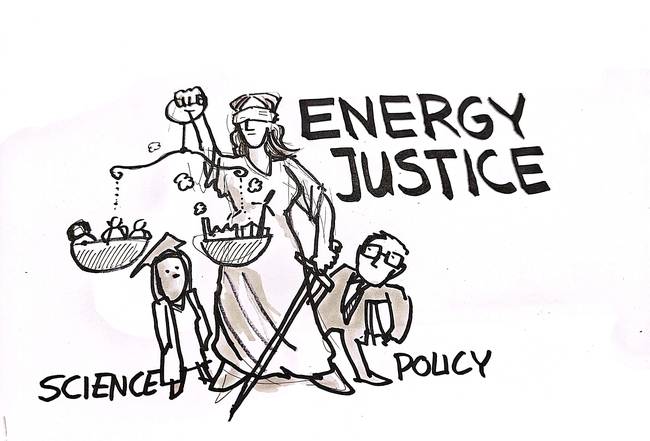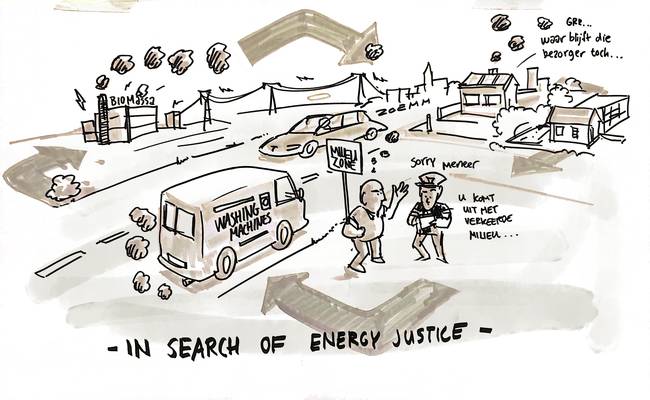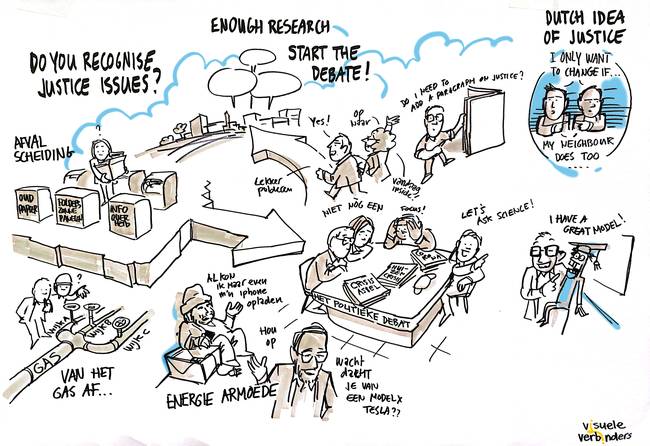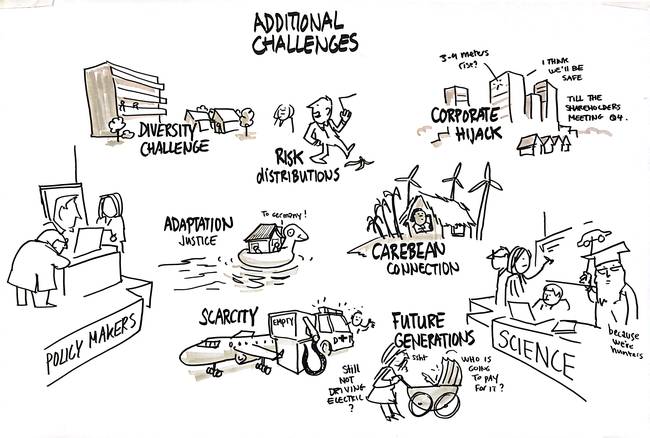The workshop commenced with an engaging presentation by Behnam Taebi, professor of energy and climate ethics at TU Delft. Prof. Taebi took us on a journey through the scientific origins of energy justice, which traces back to the 1980s in the United States when it began as 'environmental justice.'
Today, we can identify four essential tenets of energy justice:
- Distributive justice: This principle revolves around the equitable distribution of both the benefits and burdens of energy production and consumption, both among generations and within the current generation. It entails equal access to energy benefits and the fair allocation of adverse consequences.
- Justice as recognition: This pertains to identifying whose interests are at stake in decisions related to energy. It is crucial to recognize all stakeholders and ensure that their rights and needs are respected.
- Procedural justice: This principle focuses on fair and inclusive decision-making processes concerning energy policy, including international negotiations.
- Restorative justice: This involves rectifying any historical injustices related to energy decisions.
Studies on energy justice are of significant importance as they enable us to examine these four pillars in a descriptive manner. However, in discussions about justice, normative values and diverse perspectives play a crucial role and must be acknowledged and discussed.
During the workshop, practical examples were provided where the four pillars were not adequately considered, leading to problems. An example of this includes decision-making processes concerning gas drilling, where procedural justice was compromised, and subsequent restoration efforts lacked restorative justice.
Dr. Annick de Vries, project coordinator Climate at the Netherlands Scientific Councel for Government Policy (WRR) presented deeper insights into distributive justice aspects and the considerations that must be made. She posed the important question: how should we fairly distribute the costs, burdens, and benefits of the energy transition?
Following the presentations, policymakers and scientists engaged in discussions. Policymakers shared the insights they still needed and where science could assist them. Scientists, in turn, gained a better understanding of the questions and needs of policymakers who deal with these complex issues on a daily basis. The exchange of insights and perspectives led to new understandings for both parties and contributes to advancing energy justice in practice.
Topsector Energy will use these insights and collaboration with these and other experts to establish an innovation programme dealing with the most pressing challenges concerning Energy Justice. In the course of this year we will inform you about the progress that has been made.




